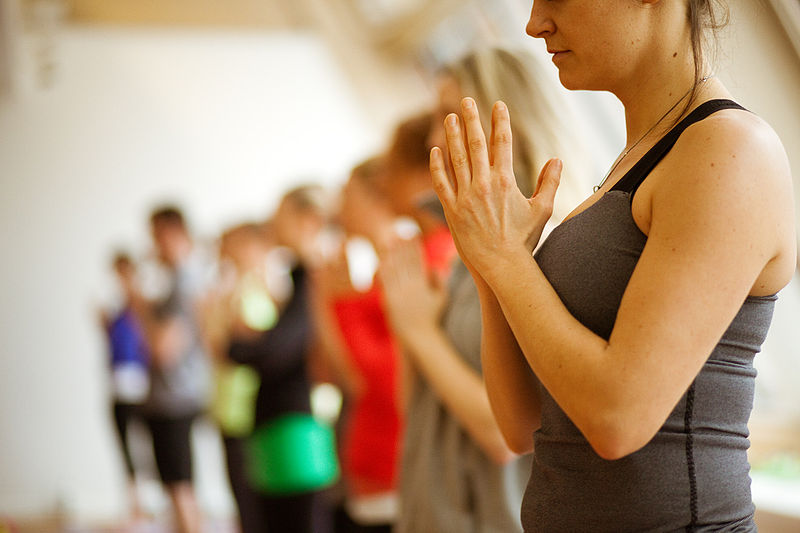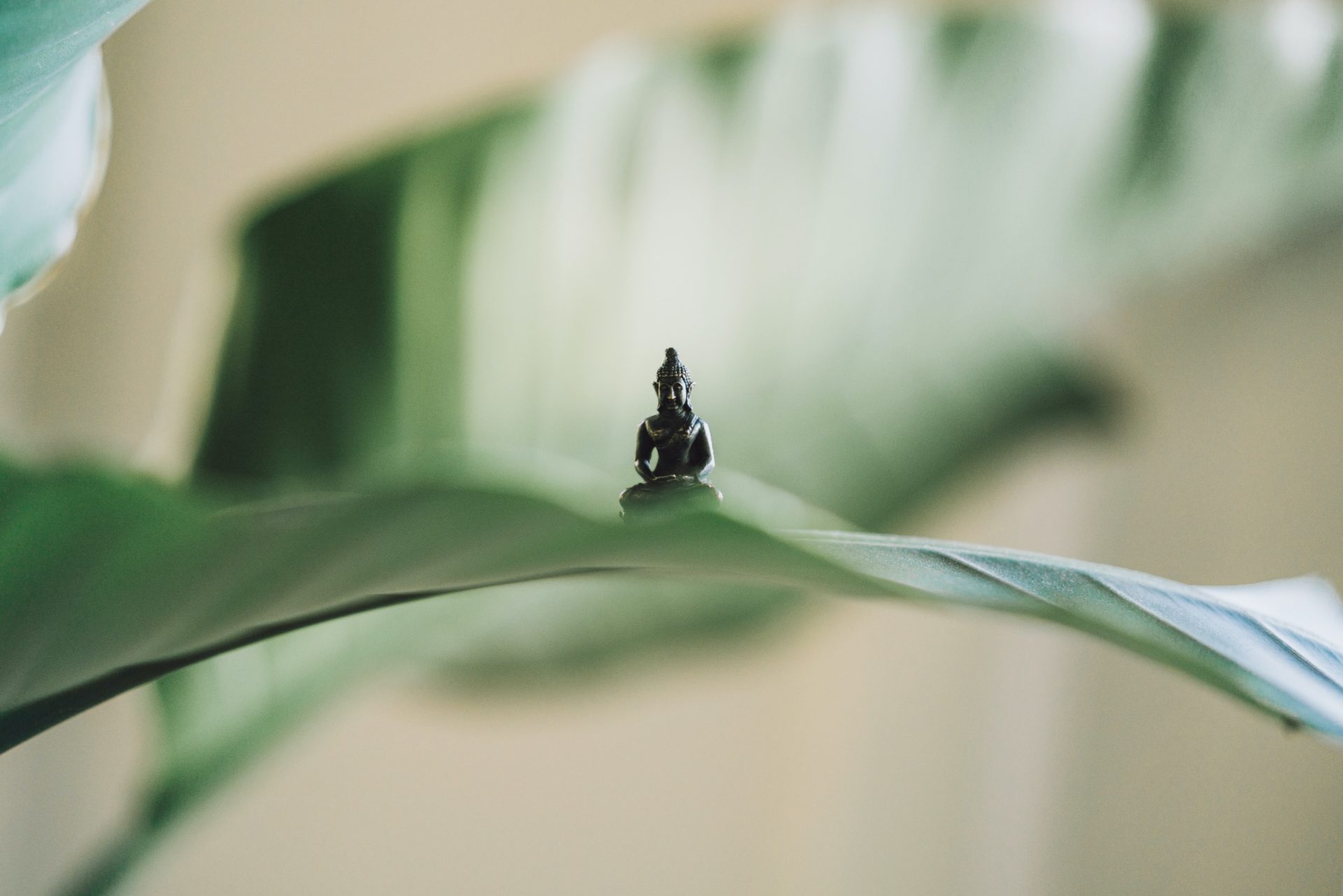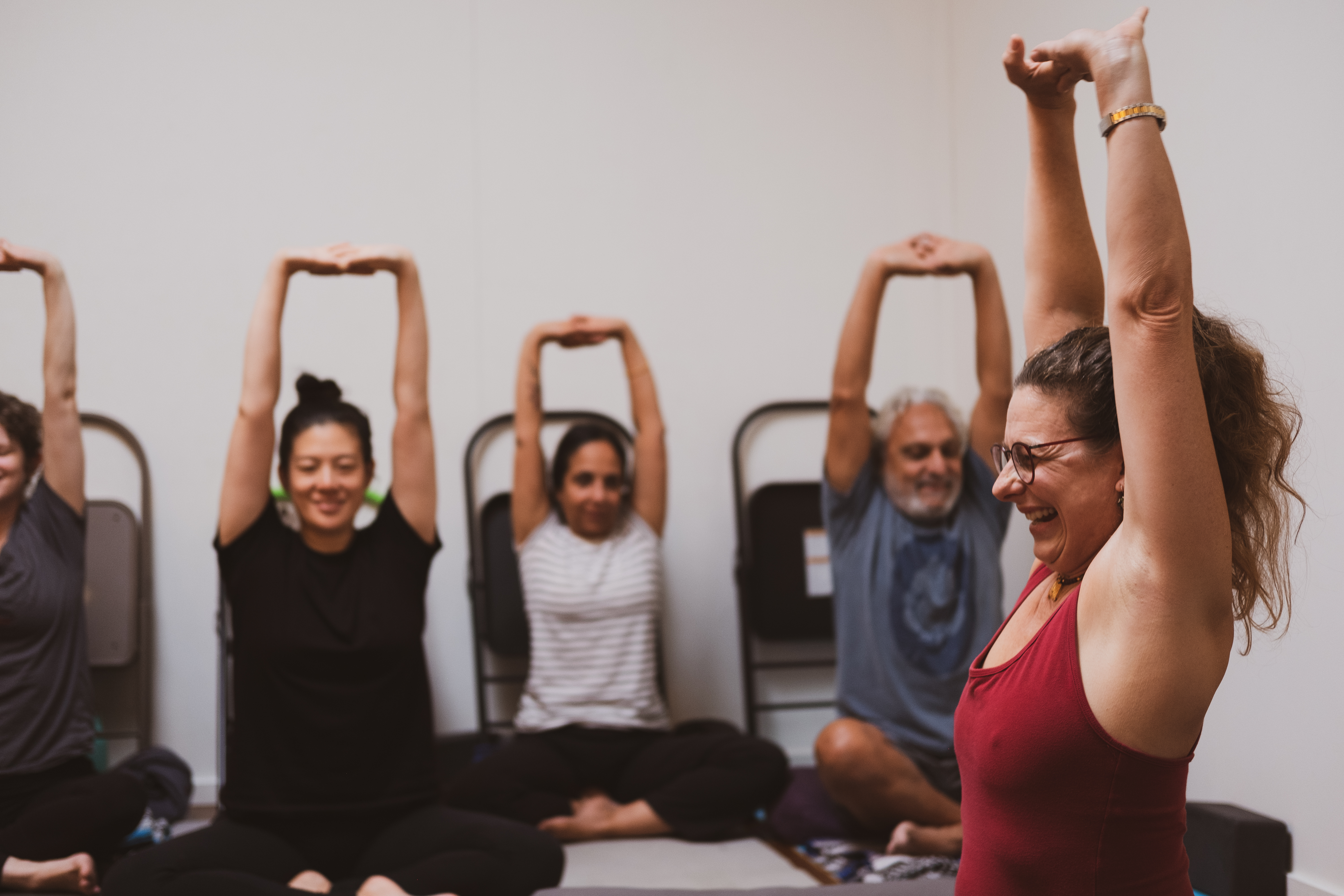‘Yoga’ itself is becoming a more accepted and widely-used/known term, it is not uncommon to regularly meet people in life who talk about it, practice it, love it, hate it, are confused by it, live it and breathe it. Yet there are still those who seem to almost subconsciously have adopted the yoga “eye-roll.”
Occasionally, when in a mixed-crowd, if I mention I’m a yoga teacher, or in fact, if I talk about my recent article on chakras, or the importance of pranayama or accidentally bust out my best Sanskrit; the inevitable eye-roll or even a facetious look will be subtly crossing several faces.
Now, I know what the eye-roll means, it’s a judgement, one that says ‘how pretentious’, an inward sigh, a big old disappointment of ‘Oh, she’s one of those.’ That’s not to say that these eye-rollers are judgmental people,  it is simply the way that the culture of yoga and the surrounding philosophies are communicated and portrayed in modern life. Most of the time I think: well, it’s my interest; I love it, if it comes across as pretentious: so be it. Then again, it is a little disgruntling to be so passionate about something, only to be met frequently by (albeit well-meaning or jesting) eye-rolling.
it is simply the way that the culture of yoga and the surrounding philosophies are communicated and portrayed in modern life. Most of the time I think: well, it’s my interest; I love it, if it comes across as pretentious: so be it. Then again, it is a little disgruntling to be so passionate about something, only to be met frequently by (albeit well-meaning or jesting) eye-rolling.
So, why do people make these assumptions about the pretentiousness of yoga? Well, saying all that, there is no smoke without fire. There are always those who let the team down. “New Age Yoga” as it is apparently being dubbed, is fast developing into something which yes, could be seen to be eye-roll-worthy: the $100 yoga pants, the ridiculously niche sub-categories of yoga (i.e. Doga: Dog Yoga, yoga under water, yoga in space…okay, that one is artistic license, but give it time people, give it time.)
See, the thing that bothers me is the vulnerable and mildly gullible, who are searching for something. These people often turn to yoga because of its introspective nature, its inclusion of meditation and its ability to heal. However, these people are also perfect prey for the predators of the yoga market. If you are just introspective enough and have expensive taste, then the affluent community of yoga may appeal to you, and they will see you coming a mile off (because God knows you can’t meditate without those eco-friendly, easy-clean designer mats.)
The more this “New Age” yoga fashion grows, the more it is “cool” to wander through the supermarket in yoga branded clothes, the more dangerous it is to the heritage and traditions of yoga. The question is begged: why are we doing yoga? Are we doing it to benefit ourselves, our body and mind? Our spirit? Or are we doing it to fit in? To check out the latest craze?
Many feel intimidated by the yoga world, and I don’t blame them. Feeling anxious before going to your first class is common, and frankly reeks of irony. There is this notion which exists in some teachers, studios, classes, a notion of striving for perfection, of competition; and that’s so not what it’s all about. Having said that, if you find the right class or teacher, there can be the most wonderful atmosphere, no pressure, being comfortable with what you can do and who you are, and of course: keeping you grounded. I once went to a class in which the teacher casually opted for the phrase “Now allow your hips to open like a flower.’ Personally, I think this is an unnecessary and frankly, lazy metaphor. Why say it? You could end that sentence after ‘open’ and still get your point across, you could simply point out the physiological benefits of the pose, or simply allow the students to get on with it in silence (my preferential choice). Also, if you’re gonna go for the metaphor route, I reckon the flower Is a little predictable, a little we’re-yogis-so-we-must-talk-like-hippies, I think I would rather hear something more creative like ‘opening like a door’ or a fridge, or a folder on your PC. Maybe it doesn’t have quite the same ring to it…
So it’s reasons like this which put yoga in the “pretentious” zone, in the minds of non-yogis. Another reason is that yoga can be a little classist. The 5-star yoga retreats, the expensive classes, the (albeit unnecessary) clothing and accessories, they don’t come cheap. So those single mothers with 3 kids, stressed out and struggling to get by, or the homeless guy on the street: the people who really need yoga the most, it is them who will most likely not get a chance to experience it. Yoga in the West, for the most part, caters for the wealthy, and this is increasingly distracting itself from the true nature of yoga. Of course, there are exceptions, I have taught yoga for homeless charities and senior citizens, but this is rare, and it is not a universal enough concept for it to change the way people view yoga as a whole.
If, like me, you have learnt traditional Indian yoga, there will have been some Sanskrit learning involved. During my training, I learnt many Sanskrit chants which we would use to open and close classes, to lead the  class in meditation, to acknowledge the lineage of our yoga teachers and to honor the source of yoga. In everyday life, Sanskrit is pretty much a dead language, but in yoga it is very much alive. All the poses have Sanskrit names originally, the Bhagavad Gita was originally written in Sanskrit, as were Patanjalis Sutras, yet we are the ones to name the poses after animals, shapes, etc: is the English not the pretentious part? Understandably, each country should translate the poses so it is more widely-accessible for each nationality. But using the Sanskrit has occasionally been mentioned to me as a typical “eye-rolling” notion. The names in English are not literal translations, so the idea that using Sanskrit is pretentious is like saying it’s pretentious to move to a foreign country and learn the language. It is not a necessity but it is important to accept and appreciate where yoga came from, it is imperative to acknowledge the roots of tradition: if we don’t, where will these traditions wind up? Chanting in Sanskrit is about respect and recognition of a tradition which wouldn’t be around to develop into English or any other language, if it weren’t for its origins.
class in meditation, to acknowledge the lineage of our yoga teachers and to honor the source of yoga. In everyday life, Sanskrit is pretty much a dead language, but in yoga it is very much alive. All the poses have Sanskrit names originally, the Bhagavad Gita was originally written in Sanskrit, as were Patanjalis Sutras, yet we are the ones to name the poses after animals, shapes, etc: is the English not the pretentious part? Understandably, each country should translate the poses so it is more widely-accessible for each nationality. But using the Sanskrit has occasionally been mentioned to me as a typical “eye-rolling” notion. The names in English are not literal translations, so the idea that using Sanskrit is pretentious is like saying it’s pretentious to move to a foreign country and learn the language. It is not a necessity but it is important to accept and appreciate where yoga came from, it is imperative to acknowledge the roots of tradition: if we don’t, where will these traditions wind up? Chanting in Sanskrit is about respect and recognition of a tradition which wouldn’t be around to develop into English or any other language, if it weren’t for its origins.
So, taking a look at all of the above, what do we think? Is it possible to be super into yoga without coming across as pretentious? Or more importantly: does it matter? I sometimes acknowledge the seemingly pretentiousness of my actions or words by following them up with ‘as pretentious as it sounds….’ Or ‘I don’t wanna sound..you know…’ or even indulging in a self-deprecating eye-roll myself, and I kick myself for this. Why should I change what I believe to be an expression of truth, an expression of what yoga is and an acknowledgement of what I have learnt and am still learning simply because of this “New Age Yoga” and the portrayal in modern life. If people think it’s pretentious, no worries, is that not their issue? Should we be looking at not allowing yoga to lose its roots and clinging onto the traditional Indian values, or, like anything, should we in fact be allowing it to develop, to do what it needs to do, to go through this fashionable phase,  and those who get caught up in the materialism, that’s what yoga is for them. And that’s cool. But for me personally, I will be rolling out my mat…not my eyes.
and those who get caught up in the materialism, that’s what yoga is for them. And that’s cool. But for me personally, I will be rolling out my mat…not my eyes.
Jessie Blackledge currently lives in South Korea. She previously ran her own business: Ahimsa Yoga, whilst residing in the UK. She is trained in Traditional Ashtanga and Hatha Yoga, as well as meditation, pranayama and chanting.








